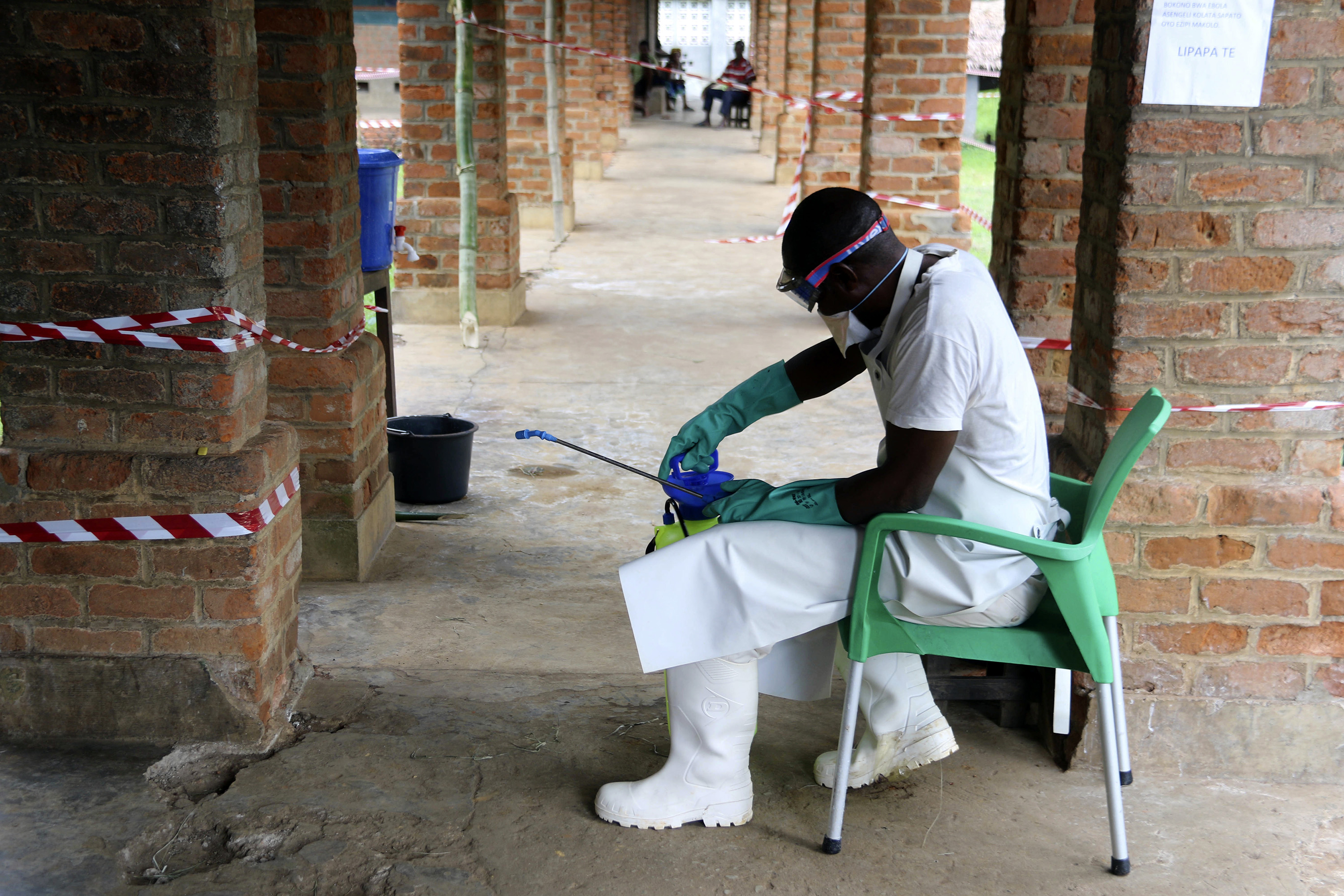
A health care worker wears virus protective gear at a treatment center in Bikoro, Democratic Republic of Congo, on May 13, 2018. (AP/John Bompengo)
An Ebola virus outbreak in the Democratic Republic of Congo last month has led Roman Catholics to stop administering several sacraments temporarily in an attempt to keep the deadly disease from spreading.
Catholics will not be baptized, confirmed, ordained or anointed until further notice in the country's northwestern regions hardest hit by the outbreak, which has claimed at least 25 lives since May 8, when the outbreak was first confirmed. The new regulations cover the Archdiocese of Mbandaka-Bikoro, which spans about 59,000 miles. Some 650,000 of the region's 1.2 million residents are Catholics, according to church statistics.
Archbishop Fridolin Ambongo Besungu, apostolic administrator for the archdiocese, announced the order suspending the use of sacraments that require physical contact to administer. A May 30 diocesan statement said the purpose is to prevent the spread of Ebola virus disease, also known as Ebola haemorrhagic fever. The disease has infected one priest so far, but he has recovered, according to Besungu.
"This is to prevent the spread of Ebola haemorrhagic fever," Besungu said. A government tally found at least 54 people have been infected over the past month.
In parishes where new regulations take effect, bishops and priests will administer Communion to the hand, not the mouth. The sign of peace, which typically involves handshakes and hugs, will be given verbally instead.
Ebola can spread when openings in the skin, such as a small cut or open sore, come into contact with an infected person's fluids including saliva, sweat and semen. Cases in Mbandaka, a riverside city of more than one million, have raised fears that the disease could spread widely via river transport.
The virus can spread from wild animals, such as monkeys and bats, to humans. Some church officials have feared that some traditional beliefs, which deem the disease to be a curse, have led to misunderstandings and hurdles to prevention.
The church is now trying to raise awareness of high-risk behaviors that are to be avoided. For instance, Besungu noted the disease can spread when family members handle Ebola victims' corpses, including those recently seen being carried on motorcycles for burial.
Many locals in the area believe the disease resulted from a curse after victims ate stolen meat of a wild animal in the countryside, according to church officials. Church leaders aim to help locals understand that Ebola can spread from one species to another.
Advertisement
"The people are very poor and hunt wild animals for food. This has put many of them at risk. We are speaking strongly against (eating meat from wildlife)," said the Rev. Josue' Bulambo Lembe–Lembe of the Church of Christ in Congo in Bukavu in a telephone interview with Religion News Service.
His church has put water cans and soap at entrances for visitors to wash hands as a preventative measure.
For Caritas, a Catholic relief organization, the focus is on prevention through proper hygiene, sanitation, community mobilization and communication.
"We are counting on the involvement of priests, men and women religious, teachers and health care workers," said Jeanne Marie Abanda, Caritas coordinator for the Mbandaka region, in a statement posted on the organization's website.
The DRC government and World Health Organization, working with church-based aid organizations and others, have mounted a massive effort to contain the virus. For the first time WHO has used a vaccine to prevent the disease.
In one of the worst cases in history, Ebola struck three West African countries from 2013 to 2016, killing 11,300 people out of 28,600 cases. The current outbreak marks the third in the DRC in the past five years and the seventh since discovery of the disease in 1976.






